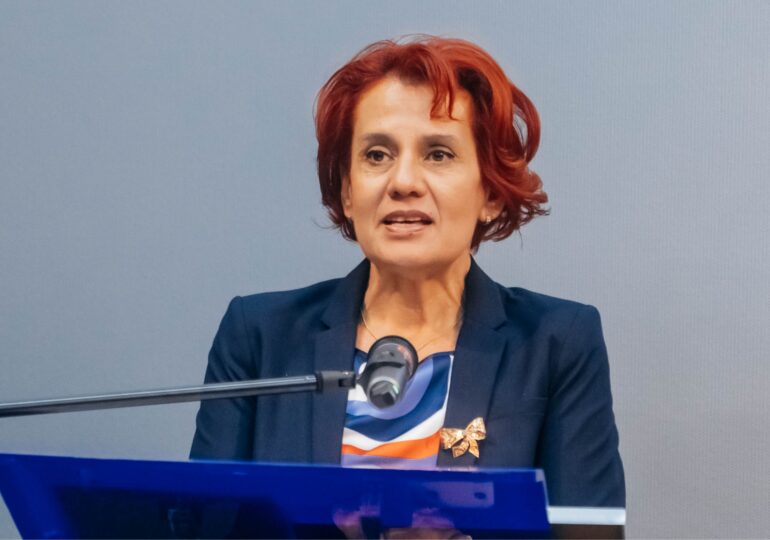The interim president leaves Cotroceni Palace with more than achieving the main objective assumed when taking on the short mandate: to be able to look people in the eyes without shame.
In three months, he managed to take normality out of breaking news, to begin rebuilding trust in the presidential function, to redefine its exercise through decency, modesty, and transparency.
After 10 years during which Cotroceni Palace was a fortress of a self-proclaimed self-sufficient monarch, Ilie Bolojan opened the gates, literally and figuratively, retransforming the function into a presidential one, based on responsibility, accountability, and respect for the citizen.
Thrown into the "water" without prior preparation, without experience in key areas, Ilie Bolojan impeccably fulfilled his duties, jokingly or seriously, from February until now, only missing an extraterrestrial invasion; otherwise, from the Trump earthquake to the death of the pope, almost everything happened globally.
But Mr. Bolojan has also set something essential, rare, very difficult to accept when it does not suit: the model of a politician who keeps his word and for whom the spoken word is solid. That's why I believe that around his leadership, the essential political construction necessary for 2028 could be coagulated.
But the road to that point is long and extremely dangerous, starting with the immediate period ahead.
Bolojan, Prime Minister
To a large extent, the positive part of the vote cast for Mr. Nicușor Dan came for the projection, much more reserved than understood, for Mr. Bolojan to become prime minister.
He consistently set some conditions: parliamentary majority, authority, partners. Meaning a majority government in which the prime minister actually leads and is supported by political forces that share the same vision and objective.
The government will be obliged to take the inevitable budget correction measures, whether it involves expense cuts, tax increases, or most likely, both. For all these measures, the government will be dependent on PSD, whether it is in power or supports the government occasionally from the opposition.
PSD is in a deep crisis, primarily of leadership, but also in its relationship with its own electorate, from which it has lost a third, in favor of AUR, but also of Victor Ponta, who explicitly threatens the current leadership.
I do not believe that the party's main concern will be saving the country, but rather its own political salvation. Therefore, it will populistically address the decisions of any government that does not have a PSD prime minister, for whom it bears the main responsibility.
Any other prime minister will be explicitly or subtly sabotaged. Being in power and in opposition at the same time is one of PSD's specialties. How they will approach the upcoming period can be seen from the conditions set for supporting the government, which exclude the main paths of recovery. The main argument for PSD remains the mayors; if they lose them, the party will truly enter a lethal crisis.
How much authority can a prime minister from a party with 14% have against a party with 22%? How difficult will it be to align the ministers, to replace them?
But the problem is not only PSD. With the exception of UDMR, which has set a great example through stability, mobilization, leadership, and a spectacular anti-extremist score (90% in Harghita), the other parties that should constitute the majority do not feel too good.
PNL seems united around Ilie Bolojan, but I have no doubt that there are factions in the party waiting to take back control. From Lucian Bode to Thuma Hubert, there are enough who are eager to reclaim the party and are just waiting for Mr. Bolojan to slip up.
Moreover, I doubt that the deep reformist appetite is much more extensive in PNL than in PSD. Ilie Bolojan's style is dangerous not only for the liberal barons but also for the social democrats.
USR is not in the best shape either. The party did unimaginable things during the campaign, and with elections ahead, the fractures are multiple.
But the most serious issue is that the future government, which must make tough decisions and act in solidarity, is supposed to be composed of components that have a traditional hatred between them. This tension is already evident in acrid statements. How will PSD and USR govern together? How will the parties accusing each other for the current situation work as a team?
Sure, the majority can rely on UNPR-type hinges made up of those recruited from other parties. But establishing such a project depends on the price in money and positions that the prime minister is willing to pay to keep the hinge functional, which contradicts the idea of reform.
Who Should Ilie Bolojan Rely on in a Reformist, Meritocratic, Relaunch Government?
On one hand, on popular support. However, it is very volatile and generally stops when it goes against one's own interests and beliefs. Will Mr. Bolojan maintain trust when he takes unpopular measures or makes inevitable unpopular appointments to maintain the majority?
I remember, for example, how he was attacked and how much disappointment he caused simply because he kept his word not to run for office.
Mr. Bolojan cannot be a solitary and messianic savior. Such a thing does not exist, as President Dan himself says. But how many of those who want him as prime minister realize this?
On the other hand, on President Nicușor Dan. However, the president, for the first time, does not have a strong parliamentary presidential party and can only obtain it by the 2028 elections through recruitments, hence risky compromises.
On the other hand, our Constitution forces two swords to enter the same sheath, which has only worked when the prime minister was somewhat submissive to the president, Boc and Văcăroiu, to be precise.
Because tensions can arise between two dignitaries who share some prerogatives without one being incompetent or ill-intentioned. They don't even have to want different things. It's enough for both to be hard stones, to have different rhythms and methods.

